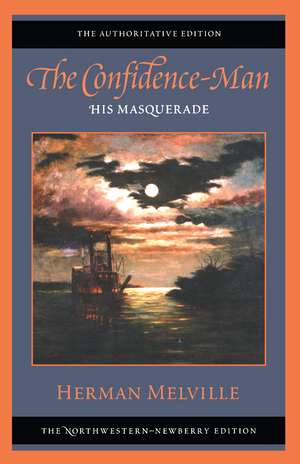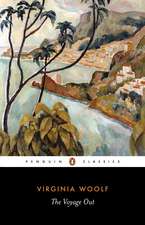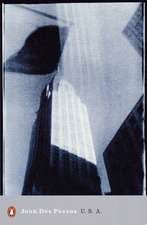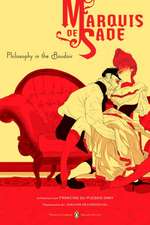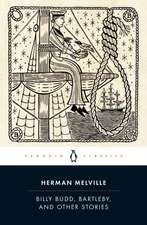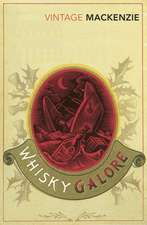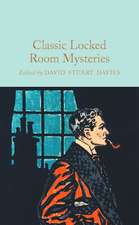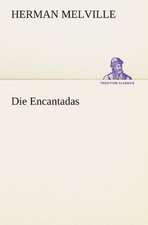The Confidence-Man: His Masquerade: Melville
Autor Herman Melvilleen Limba Engleză Paperback – 3 dec 2002
Long considered Melville's strangest novel, The Confidence-Man is a comic allegory aimed at the optimism and materialism of mid-nineteenth century America. A shape-shifting Confidence-Man approaches passengers on a Mississippi River steamboat and, winning over his not-quite-innocent victims with his charms, urges each to trust in the cosmos, in nature, and even in human nature--with predictable results. In Melville's time the book was such a failure he abandoned fiction writing for twenty years; only in the twentieth century did critics celebrate its technical virtuosity, wit, comprehensive social vision, and wry skepticism.
This scholarly edition includes a Historical Note offering a detailed account of the novel's composition, publication, reception, and subsequent critical history. In addition the editors present the twenty-six surviving manuscript leaves and scraps with full transcriptions and analytical commentary.
This scholarly edition aims to present a text as close to the author's intention as surviving evidence permits. Based on collations of both editions publishing during Melville's lifetime, it incorporates 138 emendations made by the present editors. It is an Approved Text of the Center for Editions of American Authors (Modern Language Association of America).
This scholarly edition includes a Historical Note offering a detailed account of the novel's composition, publication, reception, and subsequent critical history. In addition the editors present the twenty-six surviving manuscript leaves and scraps with full transcriptions and analytical commentary.
This scholarly edition aims to present a text as close to the author's intention as surviving evidence permits. Based on collations of both editions publishing during Melville's lifetime, it incorporates 138 emendations made by the present editors. It is an Approved Text of the Center for Editions of American Authors (Modern Language Association of America).
Preț: 108.53 lei
Nou
Puncte Express: 163
Preț estimativ în valută:
20.77€ • 21.68$ • 17.15£
20.77€ • 21.68$ • 17.15£
Carte indisponibilă temporar
Doresc să fiu notificat când acest titlu va fi disponibil:
Se trimite...
Preluare comenzi: 021 569.72.76
Specificații
ISBN-13: 9780810119680
ISBN-10: 0810119684
Pagini: 251
Dimensiuni: 140 x 216 x 18 mm
Greutate: 0.3 kg
Ediția:1
Editura: Northwestern University Press
Colecția Northwestern University Press
Seria Melville
ISBN-10: 0810119684
Pagini: 251
Dimensiuni: 140 x 216 x 18 mm
Greutate: 0.3 kg
Ediția:1
Editura: Northwestern University Press
Colecția Northwestern University Press
Seria Melville
Notă biografică
HERMAN MELVILLE (1819–1891) was an American novelist, short story writer, essayist, and poet. He is best known for his novel Moby-Dick. His first three books gained much contemporary attention (the first, Typee, becoming a bestseller), and after a fast-blooming literary success in the late 1840s, his popularity declined precipitously in the mid-1850s and never recovered during his lifetime. When he died in 1891, he was almost completely forgotten. It was not until the "Melville Revival" in the early 20th century that his work won recognition, especially Moby-Dick, which was hailed as one of the literary masterpieces of both American and world literature. He was the first writer to have his works collected and published by the Library of America.
Cuprins
1. A mute goes aboard a boat on the Mississippi
2. Showing that many men have many minds
3. In which a variety of characters appear
4. Renewal of old acquaintance
5. The man with the weed makes it an even question whetehr he be a great sage or a great simpleton
6. At the outset of which certain passengers prove deaf to the call of charity
7. A gentleman with gold sleeve-buttons
8. A charitable lady
9. Two bussiness men transact a little business
10. In th ecabin
11. Only a page or so
12. The story of the unfortunate man, from which may be gathered whether or no he has been justly so entitled
13. The man with the traveling-cap evinces much humanity, and in a way which would seem to show him to be one of the most logical of optimists
14. Worth the consideration of those to whom it may prove worth considering
15. An old miser, upon suitable representations, is prevailed upon to venture an investment
16. A sick man, after some impatience, is induced to become a patient
17. Toward the end of which the Herb-Doctor proves himself a forgiver of injuries
18. Inquest into the true character of the Herb-Doctor
19. A soldier of fortune
20. Reappearance of one who may be remembered
21. A hard case
22. In the polite spirit of the Tusculan disputations
23. In which the powerful effect of natural scenery is evinced in the case of the Missourian, who, in view of the region round about Cairo, has a return of his chilly fit
24. A philanthropist undertakes to convert a misanthrope, but does not get beyond confuting him
25. The Cosmopolitan makes an acquaintance
26. Containing the metaphysics of Indian-hating, according to the views of one evidently not as prepossessed as Rousseau in favor of savages
27. Some account of a man of questionable morality, but who, nevertheless, would seem entitled to the esteem of that eminent English moralist who said he liked a good hater
28. Moot points touching the late Colonel John Moredock
29. The boon companiions
30. Opening with a poetical eulogy of the Press, and continuing with talk inspired by the same
31. A metamorphosis more surprising than any in Ovid
32. Showing that the age of magic and magicians is not yet over
33. Which may pass for whatever it may prove to be worth
34. In which the Cosmopolitan tells the story of the gentleman-madman
35. In which the Cosmopolitan strikingly evinces the artlessness of his nature
36. In which the Cosmopolitan is accosted by a mystic, whereupon ensues pretty much such talk as might be expected
37. The mystical master introduces the practical disciple
38. The disciple unbends, and consents to act a social part
39. The hypothetical friends
40. In which the story of China Aster is, at second-hand, told by one who, while not disapproving the moral, disclaims the spirit of the style
41. Ending with a rupture of the hypothesis
42. Upon the heel of hte last scene, the Cosmopolitan enters the barber's shop, a benediction on his lips
43. Very charming
44. In which the last three words of the last chapter are made the text of the discourse, which will be sure of receiving more or less attention from those readers who do not skip it
45. The Cosmopolitan increases in seriousness
2. Showing that many men have many minds
3. In which a variety of characters appear
4. Renewal of old acquaintance
5. The man with the weed makes it an even question whetehr he be a great sage or a great simpleton
6. At the outset of which certain passengers prove deaf to the call of charity
7. A gentleman with gold sleeve-buttons
8. A charitable lady
9. Two bussiness men transact a little business
10. In th ecabin
11. Only a page or so
12. The story of the unfortunate man, from which may be gathered whether or no he has been justly so entitled
13. The man with the traveling-cap evinces much humanity, and in a way which would seem to show him to be one of the most logical of optimists
14. Worth the consideration of those to whom it may prove worth considering
15. An old miser, upon suitable representations, is prevailed upon to venture an investment
16. A sick man, after some impatience, is induced to become a patient
17. Toward the end of which the Herb-Doctor proves himself a forgiver of injuries
18. Inquest into the true character of the Herb-Doctor
19. A soldier of fortune
20. Reappearance of one who may be remembered
21. A hard case
22. In the polite spirit of the Tusculan disputations
23. In which the powerful effect of natural scenery is evinced in the case of the Missourian, who, in view of the region round about Cairo, has a return of his chilly fit
24. A philanthropist undertakes to convert a misanthrope, but does not get beyond confuting him
25. The Cosmopolitan makes an acquaintance
26. Containing the metaphysics of Indian-hating, according to the views of one evidently not as prepossessed as Rousseau in favor of savages
27. Some account of a man of questionable morality, but who, nevertheless, would seem entitled to the esteem of that eminent English moralist who said he liked a good hater
28. Moot points touching the late Colonel John Moredock
29. The boon companiions
30. Opening with a poetical eulogy of the Press, and continuing with talk inspired by the same
31. A metamorphosis more surprising than any in Ovid
32. Showing that the age of magic and magicians is not yet over
33. Which may pass for whatever it may prove to be worth
34. In which the Cosmopolitan tells the story of the gentleman-madman
35. In which the Cosmopolitan strikingly evinces the artlessness of his nature
36. In which the Cosmopolitan is accosted by a mystic, whereupon ensues pretty much such talk as might be expected
37. The mystical master introduces the practical disciple
38. The disciple unbends, and consents to act a social part
39. The hypothetical friends
40. In which the story of China Aster is, at second-hand, told by one who, while not disapproving the moral, disclaims the spirit of the style
41. Ending with a rupture of the hypothesis
42. Upon the heel of hte last scene, the Cosmopolitan enters the barber's shop, a benediction on his lips
43. Very charming
44. In which the last three words of the last chapter are made the text of the discourse, which will be sure of receiving more or less attention from those readers who do not skip it
45. The Cosmopolitan increases in seriousness
Descriere
The authoritative edition of Melville's last novel
